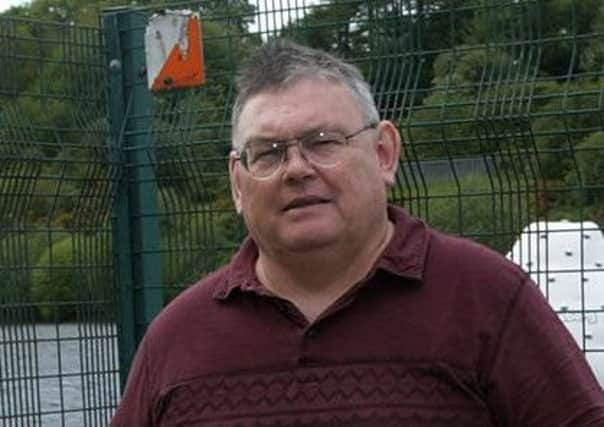Your drinking water is safe after fish kill, assures NI Water, but anglers are seething at silage slick


In a statement following the catastrophic fish kill - the worst in decades on the famed salmon river - NI Water said it could assure customers the water quality in the Londonderry area continues to be safe to drink and of the highest quality.
“Following the recent pollution incident in the River Faughan, NI Water took immediate action to protect the water supply in the area which included shutting down the Carmoney Water Treatment Works (WTW) at Eglinton,” a spokesperson stated.
Advertisement
Hide AdAdvertisement
Hide Ad“Results from continuous monitoring and sampling show the raw water in the river is once again within normal range and the Carmoney Treatment Works has been restarted.
“NI Water will continue to monitor water quality around the works and continue to liaise with NIEA in relation to their water quality monitoring in the River Faughan,” they added.
But Gerry Quinn from the River Faughan Anglers expressed the sense of anger and frustration felt by local anglers who use the river.
In a lengthy statement, he pointed out: “For weeks there have been indications of problems with water quality in the upper Faughan, and the response from the competent authorities appears to have been inadequate at best.
Advertisement
Hide AdAdvertisement
Hide Ad“Over a couple of days this week a major pollution incident unfolded, it could well have been the cumulative effects of a series of discharges of agricultural effluent, which seems most probable with hindsight.
“This was reported on Monday, and in response to investigations NI Water were warned to shut down their plant at Cloghole, near Campsie.
“On Tuesday we had reports of a catastrophic fish kill above Claudy, which was bad enough, but to add insult to injury NI Water emptied the dam at Campsie, a long stretch of deep water holding large numbers of fish, and we witnessed a second fish kill yesterday evening (Tuesday, August 2).
“This fish kill has been largely ignored by the Loughs Agency and by the media for reasons best known to themselves.
Advertisement
Hide AdAdvertisement
Hide Ad“Today (August 3) we have more dead fish on the tidal stretch below the NI Water barrage and pumping station.
“Our anglers are walking the river seeking evidence of the damage caused by this dreadful pollution, and have contacted Loughs Agency to come and collect these fish.
“For many years anglers have been complaining about how lack of regulation by planners and DOE/NIEA had facilitated unauthorised development along the river, despite its designation as a special area of conservation in respect of Atlantic salmon and European otter.
“Our fears that a pollution incident might cause catastrophic damage to fish stocks and the habitat generally have been realised over the past few days.
Advertisement
Hide AdAdvertisement
Hide Ad“We have been aware that we have been very lucky that we haven’t had a significant fish kill before this, but over the past few days our luck ran out, with terrible consequences.
“We are keenly aware that there is nothing to stop this happening again today, tomorrow or next week.
“Having watched the performance at the NI Water pumping station last night it is clear there is no cohesive finely tuned emergency plan in place to deal with an emergency such as this. Or if there is it collapsed into farce last night (August 2).
“And promises of an effective response to any major pollution incidents emanating from the infamous superdump at Mobouy now appear risible.
Advertisement
Hide AdAdvertisement
Hide Ad“All of this has been allowed to happen despite the protections afforded by EU designation as a special area of conservation, by the provisions of the Water Framework Directive, the Habitats Directive, planning policy and much more.
“And now we have the Minister for Agriculture proposing to resurrect an idea first raised by the previous DOE minister for a memorandum of understanding between farmers and the environment agency, to effectively turn a blind eye to farm pollution. You couldn’t make it up.”